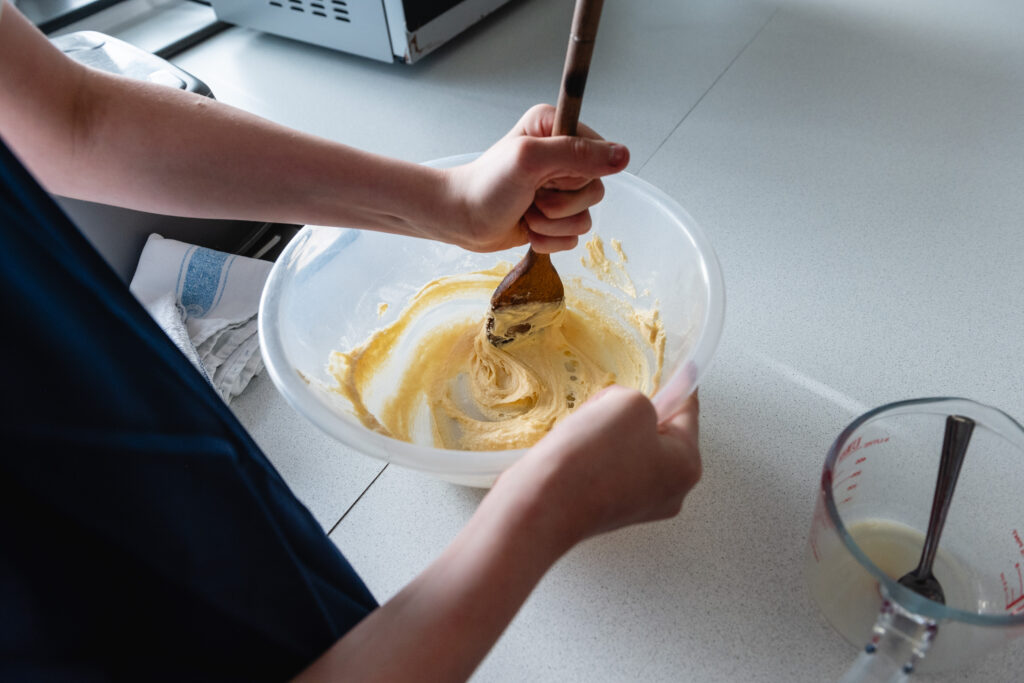Students will develop culinary skills, creativity and critical thinking about the food we eat, its impact on the world around us, and a clear understanding of the complexity of the hospitality industry.

Hospitality and Catering is the fourth largest industry in this country and accounts for 10% of the countries workforce. We will equip students with the knowledge, understanding and skills required to progress to employment in the sector.
Students will develop their knowledge of issues related to nutrition and food safety and how they affect successful operations in the industry. They will also develop food preparation and cooking skills as well as important transferable skills such as organisation, time management, planning and communication.
Enrichment
Students will have the opportunity to cater for the Beckfoot Christmas afternoon tea celebration for local care home residents.
Students will aim to provide an understanding of nutrition to their school and local community.
Assessment
Internal assessments will take place throughout each year to monitor student progress and further inform teaching and learning.
Students will be assessed with an exam worth 40% of their overall grade and coursework worth the other 60%.
KS4 Specification
Careers
The Hospitality and Catering curriculum links nutrition, social, moral, ethical and environmental
issues and recipe planning and adaptations to the environment around us. There is an emphasis on
time management and independent working as all practical lessons are only 1 hour long.
Curriculum Overview
| Year | Cycle 1 | Cycle 2 | Cycle 3 |
|---|---|---|---|
| Year 10 | Introduction to dishes project – complex knife skills, upskilling meals, complex sweet and savoury garnish, professional presentation techniques. Service providers in hospitality and catering – commercial, residential facilities, success criteria, costings, advertisement. Service operations – front and back of house, equipment, routines) Macro and micronutrients functions and sources customer types, target ages, needs and dietary requirements Practical work – fresh pasta, tomato reduction, carbonara roux, cinnamon swirls, own dish adaptation, focaccia,/fougasse bread adaptation, lemon posset, ginger biscuits, short crust jam tarts, quiche lorraine, lemon meringue pie, chocolate roulade | Service operations – job roles, personal attributes, customer service Health and safety in hospitality – legislation, record keeping, risk assessments, control measures Cooking methods – factors affecting dish/customer choices Practical work – Deboning/jointing whole chicken, homemade garlic butter, chicken kiev, Texan BBQ sticky thighs, salt and pepper drummers, chicken noodle soup, herby bread rolls, profiteroles and chocolate ganache, mini steak bakes, meringue kisses, swiss roll, guacamole coleslaw | Upskilling, time plan (quality control), H&S, contingencies Practical work – prior recipe adaptations, own ideas, mini chicken kievs, profiteroles, quiche, ravioli and sauce, side dishes (two vegetable and two potato) |
| Year 11 | High level skill preparation techniques, performance review, dish justification Practical work – This will be where the students design dishes to suit a brief, 2 main dishes and 2 side dishes NEA planning and written work, students are given the real exam board scenario and start to work towards making notes for each recorded class session | Food safety in hospitality – pathogens, preventions, allergies, intolerances Practical work – sweet and savoury dishes of choice to reflect a complex skill, specialist cooks, dough, pastry, chicken, vegetable dishes | Revision booklets and exam papers Practical work – occasional celebration cooks |